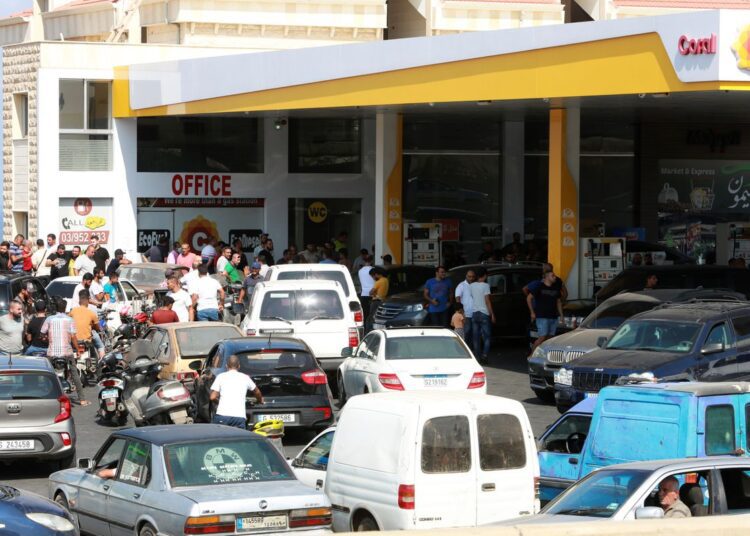BEIRUT – Lebanese fuel prices are expected to double after the state decided to change the exchange rate used to price petroleum products in a bid to ease crippling shortages that have brought Lebanon to a standstill.
Amounting to a partial reduction in fuel subsidies, the rise will mean more hardship in a country where poverty levels have soared during a two-year-long financial meltdown that has wiped more than 90% off the value of the Lebanese pound.
The decision was made at an emergency meeting attended by the president, central bank governor and other officials over a fuel crisis that has left Lebanon in chaos, paralysing basic services and sparking daily melees as people scramble for fuel.
Though prices will rise, the decision did not fully lift the exchange rate for pricing fuel to the exchange rate at which the central bank will finance its import – a gap which the state will continue to finance, for now.
A statement said the central bank will open an account to for that purpose up to a maximum of $225 million until the end of September – funds the government will have to pay back in the 2022 budget.
The account was to cover an “urgent and exception subsidy” for gasoline, fuel oil and cooking gas, the bank said according to Reuters.
The fuel subsidy would only continue until the end of September, a ministerial source said.
President Michel Aoun confirmed the treasury would bear the cost of the continued subsidy.
The fuel crisis worsened this month when the central bank said it could no longer finance fuel imports at heavily subsidised exchange rates and would switch to market rates.
The government objected, refusing to change official selling prices, creating a standoff that left importers in limbo and caused supplies to dry up across the country.
Saturday’s decision marked a compromise as official selling prices will now be based on an exchange rate of 8,000 pounds to the dollar, up from 3,900, but still well below an unofficial parallel market rate closer to 20,000 pounds.






Discussion about this post